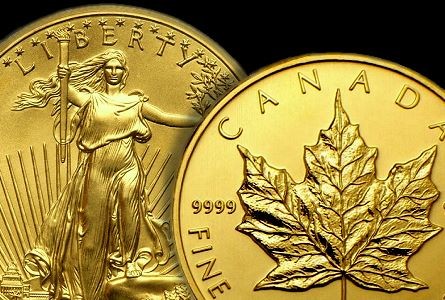7 Naive Mistakes Made by Beginners When Investing in Precious Metals
Post on: 3 Апрель, 2015 No Comment

The current global economic crisis gives plenty of reasons to ordinary people who have at least some savings to invest in precious metals.
Silver and gold are both ideal for investments, the latter is preferred. However, many can only afford silver.
Many are fearing currency devaluation and are literally escaping into silver and gold investments, as hedges against inflation.
Although, the common person makes naпve mistakes when starting to invest in precious metals. Lack of experience, too little documentation and emotional impulse-driven decisions make people rush towards precious metals.
Let’s see the most common mistakes that ordinary people make when investing in precious metals.
1. Not watching the prices of precious metals enough You need to know when they are going up and when they’re down. Many make the mistake of buying when prices are the highest, either because they see them growing and purchase immediately or they don’t take account of the oscillations at all!
2. Not looking around to compare prices and buying too expensive products Not all investment metal products have the same price. Otherwise said, some sellers sell them at an exaggeratedly high price. The higher the price, the more you will pay in vain. It’s like throwing your money out the window. Take your time to check the spot prices of precious metals and compare the prices of bullion products sold by various companies. Eventually you will find the ideal seller that puts the smallest percentage on top of its products.
3. Buying scrap gold, scrap silver Don’t just buy anything that’s made out of precious metals. A necklace, a ring or an old coin would give you a lot of headaches when trying to re-sell it during hard times. Scrap precious metal objects are not investment metals! Very few people will want to buy them from you, most of these are not pure (silver gold, platinum whatsoever), they tend to have aesthetical defects.

4. Buying from unreliable sources increases the risk of fake bullion Many make the mistake of buying from unreliable sources, such as dubious eBay sellers. You could easily wake up with fake gold bars, fake silver coins that are mere replicas of the original products. Always make sure that you’re either buying from banks or reliable (verified) specialized bullion sellers.
5. Not diversifying well enough One needs to have both smaller and larger pieces of metals, accumulate various metals, not just a single one. The simplest way is to buy gold and silver. Make sure you have small bars/coins and larger ones as well. You won’t be able to split a large bar, if you’ll need to spend a smaller amount in case of emergency.
6. Not taking account of the purity It’s best to buy pure gold and pure silver products, not alloys. However, many coins and other products are not pure. Some gold coins are 90 % pure, other slightly more, there are silver bars that are merely above 90 % silver. Look around well and buy the purest products, whenever you can. After all, the prices are very close on these products, so you might end up spending more on something that has less precious metals in it. Also: when selling, it will be easier with the pure products. Pure means at least 99 %. 99.99% or 99.9 % is even better.
7. Buying too much precious metal Money is not worthless (yet), however, there have been people who massively invested huge amounts of their money into bullion products leaving them with too small amounts of cash. You will need paper money for a long time, potentially years. Possibly even for 5-10 years, we will still have paper money. No-one knows exactly when the fiat currencies will finally crash, but until then we will buy food, pay our bills and house-, healthcare- and education-related expenses with currencies. Don’t overbuy yourself, make sure you keep a substantial amount of paper money in your portfolio.














